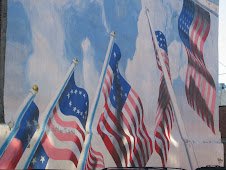"Boy, the way Glenn Miller played. Songs that made the hit parade. Guys like us we had it made. Those were the days."
In 1971, with a tumultuous decade of change slipping behind us, Archie Bunker was given life by Norman Lear. In the sweet and cringing round face of that white man who had served his country during the "big one, WW II", America's "silent majority" was given a voice.
In 1971, with a tumultuous decade of change slipping behind us, Archie Bunker was given life by Norman Lear. In the sweet and cringing round face of that white man who had served his country during the "big one, WW II", America's "silent majority" was given a voice.
Archie Bunker, love him or hate him, demonstrated to most people, at least to those who were listening at least, that the argument of social conservatives of the day was a flawed one. Although, he usually commenced his tirades against people not like "guys like us" with the power and amusement that comes with name-calling and backwardness, he almost always brought his argument around full-circle to the point where he was just wrong. Archie usually argued the causes of evolving and changing America better than Mike Stivic (his son-in-law) ever could.
"And you knew who you were then. Girls were girls and men were men. Mister, we could use a man like Herbert Hoover again."
The young men who had fought in WWII and their young wives who had supported them were now the fathers and mothers of a generation seeking new frontiers, expanded horizons. They were people who were openly gay, who dated out of their "color schematic" and they were young people wanted progressivism from their government so that poverty, crime and other social ills could be, if not eliminated, than at least addressed by their government--and, not just by the building of more prisons.
Herbet Hoover, arguably one of the most qualified men to become president, was unfortunately caught off guard by the collapse of the stock market and the ensuing depression and so his presidency was ruined. However, by harkening back to the days of Herbert Hoover, social conservatives are misreading American history. Herbert Hoover was one of the most active men in politics at the time. If he wasn't trying to build dams then he was saving the homes and communities of those flooded out by the Mississippi, all using the purse of the federal government. He was a continuation of Teddy Roosevelt; the severity of the depression led us to the extreme activism of FDR.
"Didn't need no welfare states. Everybody pulled his weight. Gee the old LaSalle ran great. Those were the days."
America was a different nation then: population 121 million. The world was a different place then: population 1.8 billion. The US was exporting to the world in roughly the same proportion that China today exports to the world. Things were considerably less complex than they are today. First of all, America is not a welfare stae

No comments:
Post a Comment